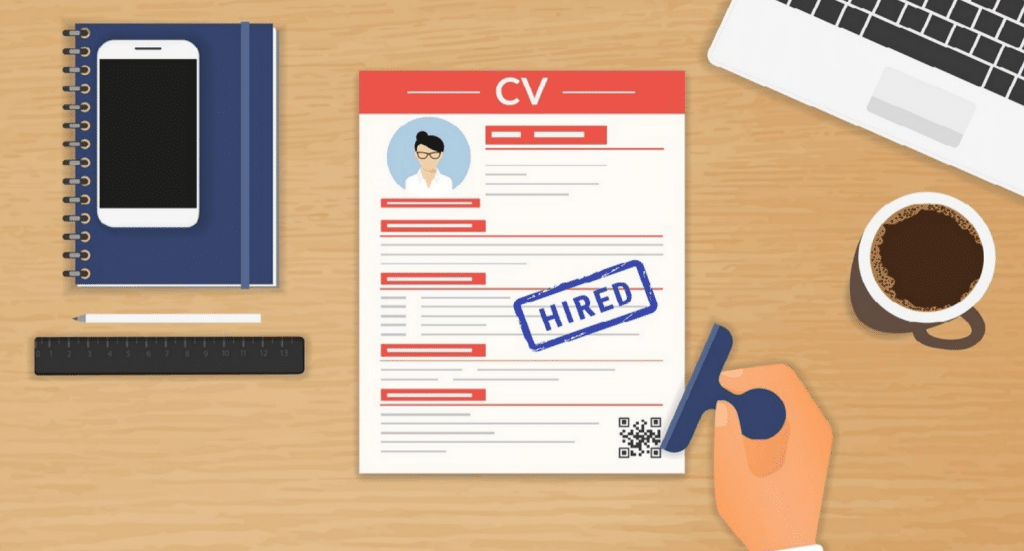For an employer or recruiter, a CV is the document by which they make their first impression of a potential employee. Errors indicate that the employee is not too responsible for its preparation. But knowing how to correctly correct a resume can quickly eliminate flaws and save your chances of getting a job.
What is a resume check?
A resume check is a professional service that identifies your resume’s strengths and weaknesses and makes recommendations for improving individual sections or an entire resume.
Do I need a CV check?
A resume check gives you a second opinion before a recruiter or employer looks at it. A fresh look and unbiased assessment is always important, as it allows you to look at the same things from a different angle or perspective.
It is notoriously difficult to write about oneself objectively, let alone evaluate one’s own achievements or experience. In this case, it is a competent critical analysis of career history that will put your resume in order.
What does a CV peer review entail?
Be sure to submit your resume for review before publishing or submitting it. The reviewer can be a friend, a colleague, an expert or a professional service https://resumegets.com/fix-my-resume.
A CV check can be done by a colleague, a former manager, a university lecturer or someone who carries some weight with you. Moreover, an independent expert can be your friend who, after reading your CV, can tell you whether he or she likes it or not.
Some online platforms also have this kind of service. It is worth noting, however, that each source offers different options and scope of verification.
Checking the length of your resume
It is very important to check the length of your resume. A resume too long at over 2 pages is not acceptable for most professions, despite the candidate’s impressive work experience. Such long resumes are hard to read and less likely to be selected. Resumes that are too short, if the candidate’s experience is more than 15 years, also raise a lot of questions. Resumegets pays special attention to optimizing the length of resumes because in many cases this is one of the main criteria for missing resumes.
Proper resume structure
All sections of a CV should be clearly labeled and contain appropriate content. It is not advisable to describe your hobbies like reading or skiing in the “Additional Information” section, or to list your high school education in the “Courses” section. Another common mistake is listing skills and competencies in the “About yourself” section. Resumegets identifies all the inaccuracies and gives you advice on how to best organise your CV content.
Resume font and style
Many job seekers fill out ready-made forms on online job search platforms, and in this case, the font is irrelevant. However, if you want to build a ready-made CV, it is the style of the CV that will be important in creating the right atmosphere to explore your career story. Oddly enough, the choice of font for a CV is largely determined by your specialism: Helvetica for business, Times New Roman for lawyers, Arial for entry-level professionals, and there are also standard and universal fonts for everyone.
Job duties or work experience
The section that makes up about 60%-70% of all CVs and is most likely to contain errors. Recently, there has been a tendency to “copy” job responsibilities from the internet. This is immediately visible in the CVs of candidates and, naturally, recruiters guess about it as well. Unfortunately, instead of enhancing resumes, job seekers receive a template resume that is not appealing and reduces the credibility of the candidate’s competencies. Resumegets points out all these problems and offers alternatives for describing work experience to add originality, uniqueness and freshness to resume content.
Accomplishments
By far one of the most challenging sections. Very few candidates understand how to create this section and are able to present the results of their work. Meanwhile, this section is probably the most important section to understand your worth to an employer.
Keywords
The one aspect that experts pay absolutely no attention to. However, the presence of keywords, not only in the skills section but throughout your resume, is the most important factor influencing the speed with which your resume is selected.
Other sections of the resume
Some job seekers get very caught up in describing their work experience and forget the importance of other sections such as education, courses, additional training, awards, computer skills and so on. Resumegets can suggest the best way to write information about red diplomas, certifications completed, or include your phone number and e-mail to make your resume more appropriate.
Skills
Candidates have no problem filling in this section when filling in ready-made forms on jobseeker websites. However, the problem for many is either an overly extensive listing of all skills, from “signed documents” to “managed branches” or, conversely, an extremely sparse set of professional competencies.
About yourself
A high profile section which many see as a place to describe your hobbies such as learning a foreign language, fishing or reading. Depending on your work experience, vacancy interest and speciality, Resumegets can advise on what is best to include in this section personally for you or compile a striking specialist profile.
